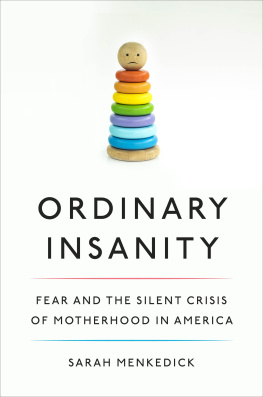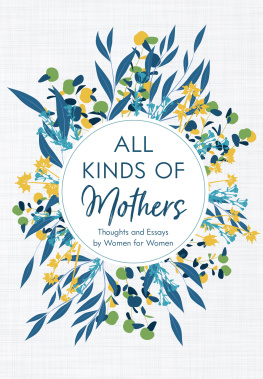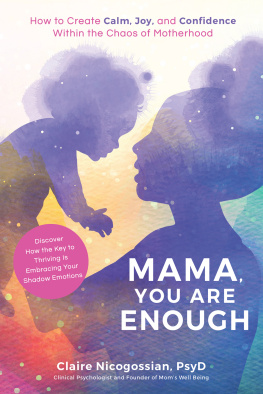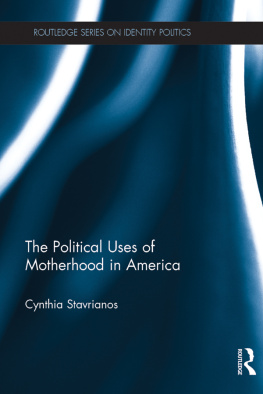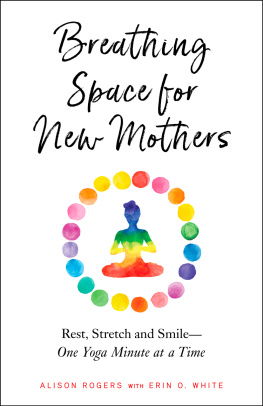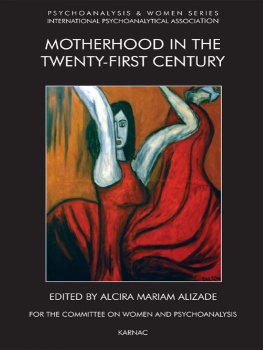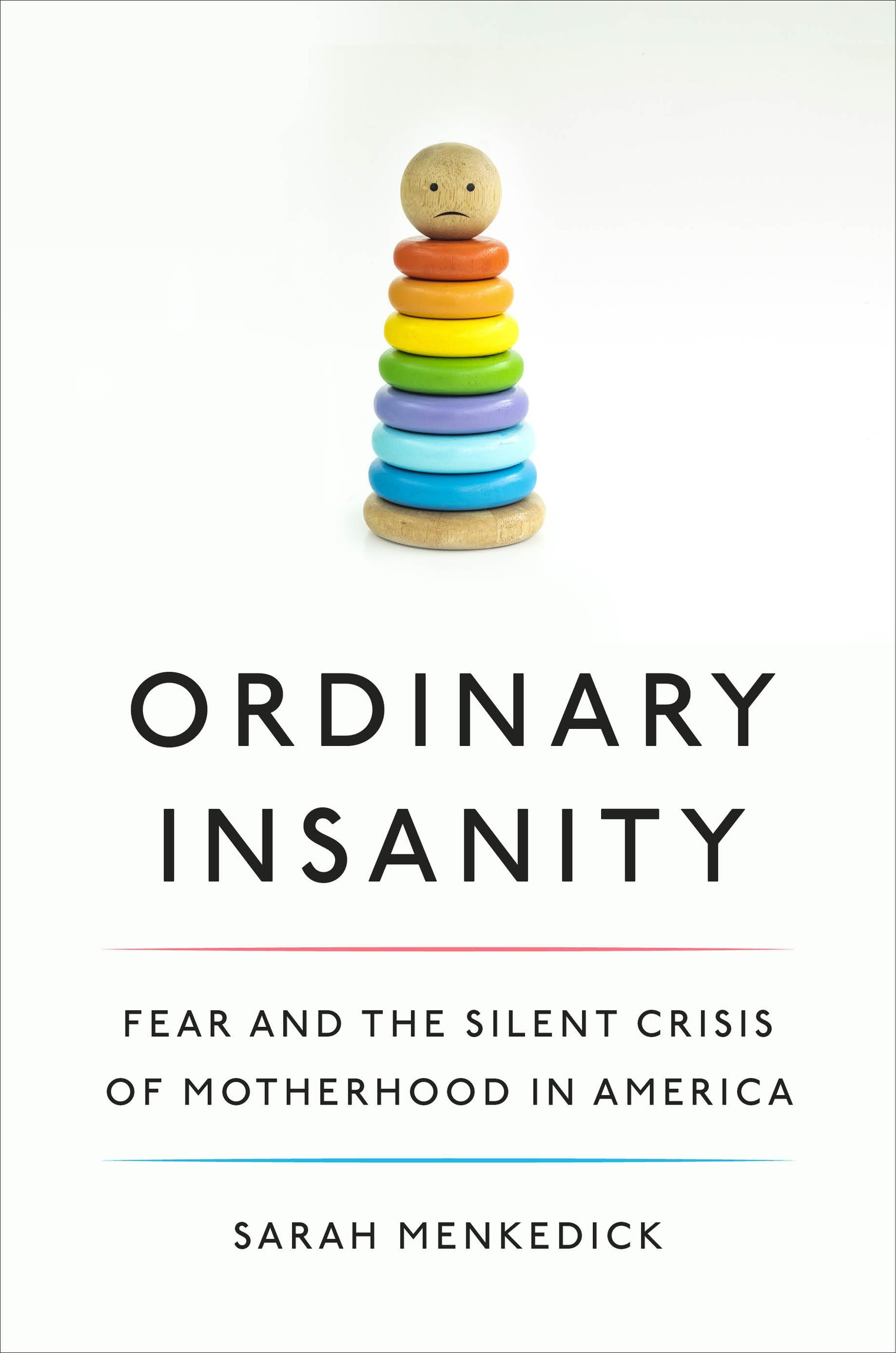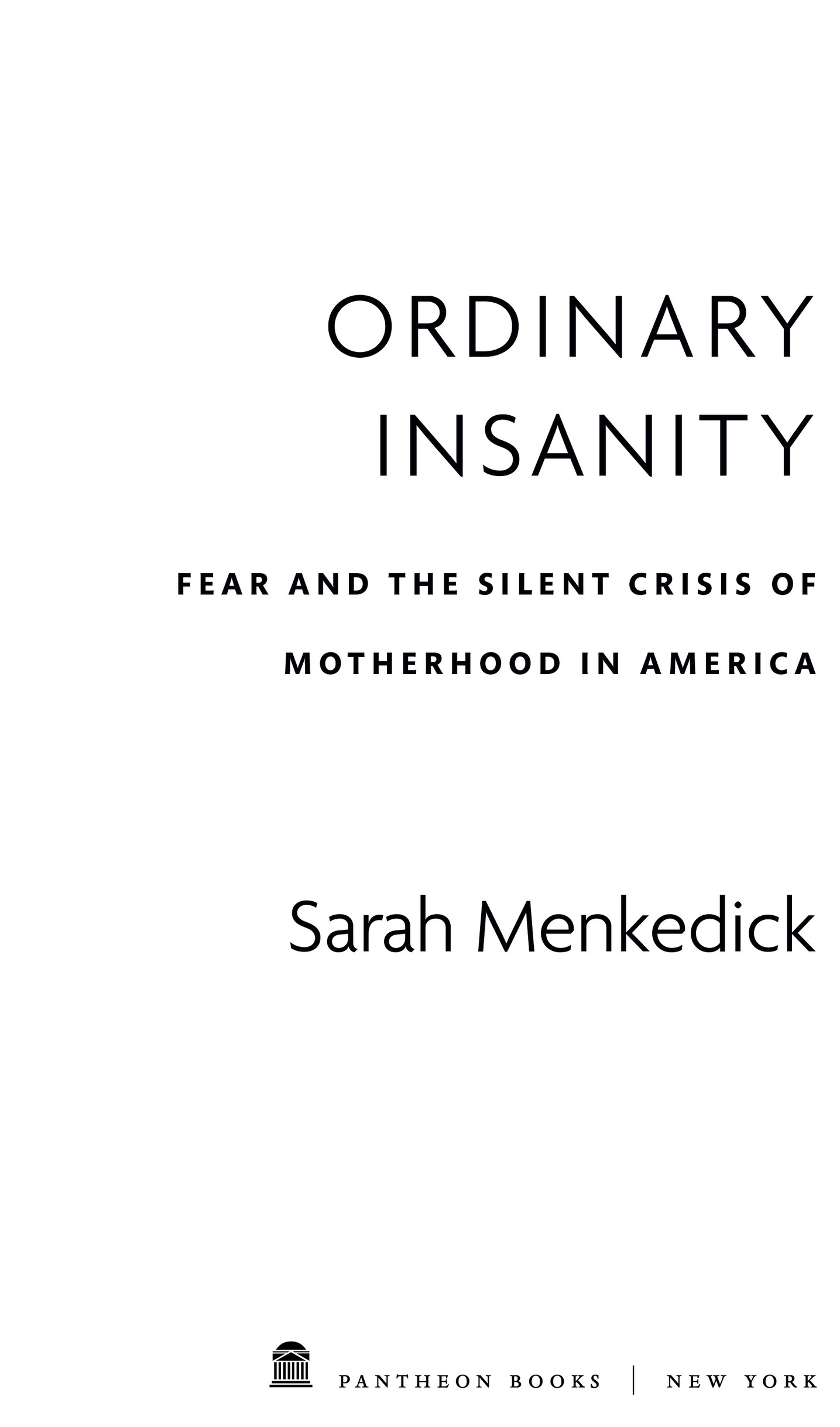All rights reserved. Published in the United States by Pantheon Books, a division of Penguin Random House LLC, New York, and distributed in Canada by Penguin Random House Canada Limited, Toronto.
Pantheon Books and colophon are registered trademarks of Penguin Random House LLC.
Name: Menkedick, Sarah, author.
Title: Ordinary insanity: fear and the silent crisis of motherhood in America / Sarah Menkedick.
Description: First edition. New York: Pantheon Books, 2020. Includes index.
Identifiers: LCCN 2019036726 (print). LCCN 2019036727 (ebook). ISBN 9781524747770 (hardcover). ISBN 9781524747787 (ebook).
Subjects: LCSH : MothersPsychology. MotherhoodPsychological aspects. Postpartum psychiatric disorders.
Classification: LCC HQ 759. M 465 2020 (print) | LCC HQ 759 (ebook) | DDC 155.6/463dc23
Introduction
Only one person warned me about what my life might look like after giving birth. Carlosor Charly, as everybody called himhad the build and the face of an old tugboat. He wore little pageboy caps and often smoked a pipe. Charly, with his artistes mustache curled up at the ends, was the type to quote Borges on the street at seven a.m. when you ran into him hungover. Years after my husband Jorge and I left Oaxaca, where wed first met Charly, he married and had a daughter. When we returned for a visit a few months into my pregnancy, we bumped into him at a caf. He offered congratulations, then he told us: Youll go into some really dark places. Seriously. Youll have to confront the darkest parts of yourself. We nodded, and held that moment up as quintessentially Charly, a splash of artistic gravitas over huevos rancheros. Yet that was without a doubt the most humanizing and important insight anyone shared with me before my daughters birth.
My fear had already begun by then, but like many women, I couldnt separate it out from the set of normal, culturally and medically and socially solicited behaviors appropriate to new motherhood. I couldnt draw a line where my fear crossed over into the darker territory of illness. Pregnant women in the United States live in a universe of risk divorced from everyone elses reality; they operate on a dramatically reduced spectrum of human possibility, in which their behaviors, attitudes, and identities are carefully proscribed and charged with dangerous potential. Who wouldnt want to protect their unborn child from exhaust? From the smell of gasoline? From plasticizers in shampoo and bodywash and hand lotion? From pesticides? From the radiation of airplanes? From the toxins in cat poop? Was there ever any reason to say: Im not going to worry about this? To answer the question why risk it? with because I want to live a meaningful life? When women become new mothers, they can talk about how tired they are, about the insane costs and waiting lists of day cares, about their partners failure to cooperate in the ways they expected. What they do not talk about is their fear. They do not say, Every time I pick up my baby I see her crushed skull on the tile. They will not say, I dont wear anything with buttons in case my baby grabs one and chokes.
Fearthe debilitating and constant and I-know-its-crazy-but-I-cant-stop kind of fear, fear that walls off the world and imprisons the self in a frantic scramble for control, fear that can never be satiated and that mimics care and love and intelligence so precisely its impossible to recognize as an impostoris the last major taboo of American motherhood. Fear has become the way American mothers police, educate, and define themselves. It is the ritual with which they commemorate their transition to motherhood. It is tightly baked into the historical strata beneath their everyday lives. It is built into their very brains. But they dont talk about it.
When I began researching this book, I thought anxiety was a growing and underdiagnosed problem affecting a sizeable percentage of American mothers, myself included. Yet as I began talking to others, I found that I was in the middle of an epidemic of fear. Some women are unable to function because of it, some grapple with it as a familiar daily pressure, and others experience it as a milder subterranean hum. But, cumulatively, fear is having a devastating, corrosive effect on maternal well-being in the United States today.
My life became a map showing the viral proliferation of disease, with red lines and dots expanding too far for me to trace. A conservative cousin in the suburbs of Cincinnati; a close friend in Seattle; a former colleague and now PhD student in California. On a plane, an older woman from West Virginia told me her daughter suffered from anxiety so extreme that she wouldnt let her child go to birthday parties at other kids houses. What is going on with your generation? the woman asked me.
Online, in a closed Facebook group Id been invited to join, I discovered that the wife of one of my daughters preschool teachers was suffering from severe postpartum anxiety. Meanwhile, out in daily life in Pittsburgh, I would spot women from the support group Id attended briefly: there was one in my daughters toddler music class; one at Target; one at the big summer concert series for families, dancing with her daughter and eating ice cream. All of these women throughout the city and the United States go about their daily lives, nodding at one another in the grocery store, all the while dogged by hidden and secret and constant worry.
This book is the culmination of several years of research, interviews, thinking, and personal struggle. It is built around the stories of women to whom I am forever grateful for spending untold hours with me on the phone or in person, guiding me over and over through their experiences so that I could convey them as accurately and vividly as possible. Per their request, I have changed several of their names and the names of their children.
I spoke to neurobiologists about how the maternal brain changes throughout pregnancy and after birth, and here I argue that as a mother is building her infant she herself is also being remade and rewired, though very little attention has been paid to the science of her transformation. Interviewing psychologists, therapists, and academics, I discovered that the way postpartum depression (PPD) is defined and diagnosed is largely erroneous, and that the term itself does not begin to describe the struggles faced by the majority of new mothers: in particular, the fact that fearnot melancholia or apathywill be their biggest tormentor, while simultaneously masquerading as good, smart, socially sanctioned parenting. I plunged into how risk during pregnancy and postpartum becomes a kind of manic obsession, and how the constant pursuit of zero risk to babies has created a toxicand dangerousculture for mothers. Researching the history of motherhood in the United States, I began to piece together the story of how motherhood shifted from a source of public, civic authority and power to a private identity and capitalist prize. I also discovered the role psychoanalysis has played in creating our modern obsession with the perfectly attuned, perfectly attached mother.

